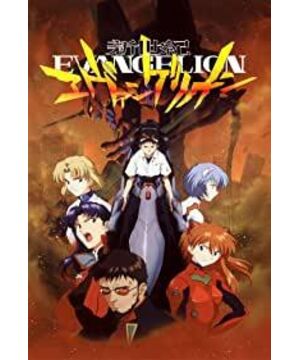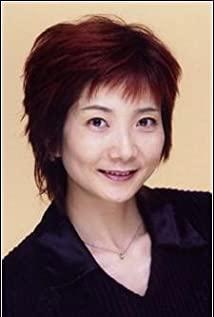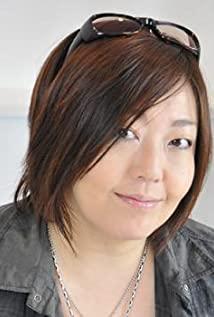"Evangelion" is a TV animation produced by GAINAX in 1995. It is not only enough to be included in the history of Japanese animation, but also left a deep impression in my heart!
After watching EVA (including EOE), it's hard for me to give a definition to this animation. The reason is that it covers a wide range of areas, penetrates deeply, and integrates philosophy, theology, and science fiction . And each character is so lifelike that it's hard to decipher. Therefore, as a non-professional and the first time to write a film review, I can only be a little stubborn and talk about EVA in my mind. (This article will not touch on religious significance, because I really don't understand.)
Unique lens usage
In EVA, we can usually see some very unique shots or editing techniques, showing the hearts of the characters to the audience in this peculiar form of expression. When describing the psychology of the characters, Hideaki Anno used unusual techniques to express the inner activities of the characters.
Anno Hideaki used a lot of brush and ink to describe the inner activities of the characters in EVA, which made the characters' characters richer, and each character was shaped into flesh and blood, which was closer to reality.
Under the real camera, why are we not the people in the play? The real footage brings the audience closer to the characters in the play. In reality, aren't we constantly seeking ourselves and exploring our self-worth?
Block the subject with BOOK (foreground) multiple times
There are also face stickers, backlight
Electric pole in empty footage
Changing the scene at the moment when the line ends is also one of Anno's favorite ways to cut the mirror.
In addition, in the filming of the face-to-face dialogue of the characters, Anno mostly used the front and back shots of the front to the front.
Different photography techniques and lines have created a unique expression in EVA, resulting in meaningful and intriguing effects.
Finally, let's take a look at an interview with Anno Hideaki by STUDIO VOICE:
STUDIO VOICE: Exactly. So what kind of live-action movie did you get as a supervisor, especially the quick cuts in the second half of "EVA"? Anno: That was the influence of Director Kihachi Okamoto. It's the beat. Because the animation picture is drawn, the amount of information is limited, so many people use the method of drawing all the scene details in the shot to solve it. Without switching, it is fully arranged in one shot. In short, the animation is drawn like a real shot. Mr. Otomo, Mr. Miyazaki, and now Mr. Oshii are doing this. I think that approach is outdated. While I think that kind of shots are needed, there's no need to make the whole film that way. The point is to control the rhythm of the pictures that provide the message you want to convey to the audience, and that goes with the music. For example, when I'm in a good mood, I frantically change the screen, and I feel very comfortable at the moment when the camera is switched.
In the interview with Okamoto Kihachi and Anno Hideaki in 1996, we can find in the dialogue that Anno was greatly influenced by the film director Okamoto Kihachi in terms of camera lens and cut mirror , and many scene changes in EVA have a relationship with Okamoto. Hihachi has the same tempo rhythm. Anno brings the lens style of the real film into the animation, giving the animation a sense of film and layering
lines and composition
In the design of lines and composition, Anno Hideaki used symbolic lines and composition to indicate the trend of the plot and the heart of the characters.
Anno once said: At that time, the TV station was very tight and often restricted us. And we and the restrictions from the TV station can be said to be in a heated competition with each other. But sex is the basic of human beings. Why do you think that because it is an animated character, it cannot be described in this regard?
So Anno may use the lines of clever composition to metaphorize this aspect of "sex".
In EVA, we can find many sexually suggestive compositions or lines , which reflect Shinji 's desire to seek love .
Sexually suggestive lines or compositions remind me of another work "FLCL" by the same house
"FLCL" is an experimental OVA animation produced by GAINAX in 2000. This work is full of big bosses, it is a carnival feast for OTAKU, and it is also very imaginative. The STAFF lineup alone is hard to be surpassed by any drama.
FLCL also expresses the emotional growth of adolescence with sexually suggestive lines and compositions. It is also the work of G company, and it also expresses characters in the same way.
Around the 1990s (after the Miyazaki incident), the development of Japanese animation entered a golden stage, and the types of animation continued to enrich. Animators are also more courageous to express what they want to express. Violent aesthetics, sex, sci-fi, etc. all indicate that the development of Japanese animation is more comprehensive and mature.
Authentic and offbeat characterization
In the radish films I watched when I was a child (whether in animation or in movies), each protagonist had a strong sense of justice, they were brave and sunny, and they acted decisively. It's an idea I had when I was a kid: Radish pilots are all-around heroes!
But EVA, washed my concept.
Ikari Shinji
My first impression was of a 14-year-old boy who was asked by a stranger's father to get on the first plane to defeat the apostles. Shinji Ikari witnessed the death of his mother when he was a child, and was then lodged with relatives by his father. The tragic childhood experience directly led to Shinji's inner flaw. Lack of love, he longs for praise, consideration and love from others, and the idea of escaping and obeying others again and again is the expression of this idea. Even a word of praise from Ikari Gendo made Shinji very happy. It was not his original wish to drive the No. 1 aircraft, but he was afraid of injury and loneliness. In the end, he got on the No. 1 aircraft and became a pilot.
Can't escape, can't escape, can't escape!
This sentence runs through Shinji's personality. He used this kind of thinking to force himself not to escape the facts in front of him, even if he hated it. This is a 14-year-old boy. He is not righteous, but only longs for the care of others. His " cowardice " (in fact, Shinji Ikari is not cowardly at all) stems from his desire and from his kindness . He is unwilling to hurt others and can only choose to cater to others. In fact, from a certain point of view, Shinji is so strong .
There is a Shinji Ikari in everyone's heart
Escapism, fear of failure and loneliness, isn't this a true portrayal of each of us? Boarding EVA to protect human beings, such a banner was forced to stand on the shoulders of a 14-year-old boy who lacked love. Even if he was used by his father as a pawn, he would stand up at a critical time. Is this still cowardly?
Asuka
Compared with Shinji Ikari, it is like two extremes. Asuka has an excessively paranoid self-esteem , but it is because of this self-esteem that Asuka looks more lively and more like a normal "person". In my eyes, she is a strong and independent person. But Asuka and Shinji have something in common spiritually, that is, wanting "love": one longs for care, and one longs for attention to be saved.
They both have psychological flaws caused by childhood experiences, but Asuka is good at hiding herself, like wearing a mask. Outside the mask is pretending to be mature, but under the mask is extremely fragile. What supports this mask is her pride and the recognition that others have brought her. However, this mask disappeared as "I was not looked at", and what followed was the devour of the inner darkness.
Yuko Miyamura: "You should know that Asuka isn't the most outspoken character I've ever met. Every time I try to get myself in sync with her, she never syncs up with me."
We can also see from Yuko Miyamura's words that Asuka does not open her heart to anyone easily. She chooses to be independent and mature to bear the pain alone.
People never consume the objects themselves (use value), they just use them as symbols to highlight themselves. - Jean Baudrillard
Although this is a famous saying about the consumer society, it is not unreasonable to use it here. Asuka pines her self-meaning on EVA, and only by doing her best can she win the proof of others. She regards being an EVA driver as a symbol to highlight herself. As a result, when her synchronization rate dropped and she watched the relationship between Shinji and Zero gradually approach, Asuka's inner defense line was broken, and it seemed that her existence value was also written off.
In episode 22, the memory and heart were read by the bird angel, revealing Asuka's deep inner longing, longing for Shinji, longing for love.
Asuka, covered in thorns but longing for someone to hug.
Ayanari
Ayanami is the ancestor of what we usually call " three no girls": no mouth , no heart , no expression (no heart does not mean no heart, but very little emotional expression) . And this is also the attractive point of Ayanami, who exudes a very emotional heart under the aloofness.
Ayanami is an artificial human, so for her, what is "self" and what is "heart" is a process that needs to be explored slowly. Unlike other works that are poorly described in this regard, Ayanami Rei (No. 2)'s growth process is very well connected from the beginning to the end of EVA. At first, Ayanami only opened her heart to the commander, and after Shinji came, she slowly regained her heart by getting along with Shinji. She starts to smile at Shinji; she starts to blush at Shinji's words; she starts to say thank you to Shinji. She will finally say "I'm not a doll".
Ayanami, finally, is no longer a puppet that only obeys Ikari Gendo, but a real person!
The fate of No. 2 Ayanami Rei is tragic, but splendid. At the moment of making the sacrifice, Ayanami became a real person, no longer ordered by anyone, but acted on her own will. Ayanori, it is the mystery brought by high cold that attracts everyone.
In fact, in the early days, I didn't like the role of Ayanami Rei, because she didn't have her own will. But slowly, when the character stopped being monotonous silver as the main color, when she exposed her emotions, the contrast caused me to like this character more and more.
When I finished writing the role of Ayanami Rei, I found a video on the interpretation of Ayanami Rei on station B. The up interpretation is very detailed, and I will show it here for everyone to see. Ayanami Character Analysis
If I have time, I will add Katsuragi Misato.
When watching EVA (old), I didn't go for partisanship. No matter who and who, for me, it is mutual rescue between characters. Instead, I prefer to watch each character grow.
In the animation of aircraft warfare type, the protagonist's character is generally sunny and cheerful, with a strong sense of responsibility, and he is an uncompromising hero! But the same as the type of machine combat, the protagonist of "EVA" has many personality problems, and each of them is a young girl with a closed mind, which is what I call an alternative characterization. 14-year-old boys and girls, what they show is not the kind of fearlessness that surpasses their peers or even adults. They are also afraid of death and loneliness. They want love and comfort. Put it in the mirror, and that's what I call real characterization.
What is "self"
Three protagonists, we see that each has their own psychological problems. But all three are seeking "self"! The word "self" is very philosophical, and the protagonist of EVA is exploring this philosophical "self". Regarding such philosophical issues, you can go to see some interpretations of the great gods. I know very little, I can only write down a little bit of what I heard and felt.
Speaking of "self" (a big concept here and above), we have to introduce Freud's theory of personality structure .
Freud believed that personality consists of id, ego and superego. The id (id) reflects the biological instincts of human beings, acts according to the principle of pleasure, and is a "primitive person"; the ego (ego) seeks to satisfy the instinctive impulses under the conditions permitted by the environmental conditions, and is the executor of the personality, according to the reality Acting according to principle, is "real person"; superego (supergo) pursues perfection, represents human sociality, and is "moral person". Under normal circumstances, the id, ego and superego are in a coordinated and balanced state, thus ensuring the normal development of personality. If the three are out of balance or even destroyed, psychological barriers will occur and the development of personality will be endangered. ——From Baidu Encyclopedia
Anno Hideaki: Yes. That's Dr. Freud's theory of good moms and bad moms in the oral stage. In short, the mother protects herself unconditionally, but also binds herself. Then, mother can't be in a good mood every day, right? For example, when he is crying, if his mother is in a good mood, she will say good child, good child, stop crying and come to comfort herself. If she is irritable and in a bad mood, she will be angry and scold herself. Children will feel that these two mothers are not the same person, so they are divided into good mothers and bad mothers. When they agree that these two personalities exist in one personality at the same time, the child will truly recognize others. This is what I want to express. I have used all the ideas I came up with. ——Interview with JUNE
Each character is trying to find a balance of personality in a complex and dangerous world. Which level of "I" is the real "I".
What is the real "I" is difficult for me to articulate, because knowing oneself is a life-ending problem. For the three protagonists, it is particularly difficult to define themselves in the absence of loneliness and lack of love. Therefore, we can always see the psychological activities of the three protagonists in this regard, their values, consciousness, and desires, all of which are derived from these highly expressive pictures and lines.
In order to survive physically or psychologically, a person has to hide and suppress his emotions and needs. This repression is a kind of protection, but it also forms a hard shell that makes him lose himself. People who have no ego do not really have no ego, but hide themselves because of constant fear.
It is a pity that there is no psychological counselor in the world of EVA, and everyone needs to guide themselves to the most correct self.
Production Background and Anno Hideaki's Self-Expression
Let's watch another interview with STUDIO VOICE
STUDIO VOICE: In other words, didn't think about criticizing animation fans who used animation as a refuge from reality?
Anno: I was very depressed when I was working on "Leaping the Peak". In 1986, the "Wang Li Cosmos Army", which we at Gainax worked hard to produce, suffered a catastrophic failure, and we were all very disheartened at the time. We do it so hard, but audiences don't like this kind of animation, and our promotion to the non-animation fan market has failed. So we all have some mental imbalances. The audience just wanted to see a half-naked beauty driving a giant robot into the universe, so we did "Leap to the Peak" with resentment.
But what Ling Anye didn't expect was that "Leaping to the Peak" made with resentment actually achieved great success. This disappointed Anno, and Anno's taste in the audience.
The failure of "Wang Li Cosmos Army" actually caused Anno to fall into a period of pain and depression for 4 years. Anxiety and irritability have been haunting Anno.
The subsequent burst of Japan's bubble economy and the sarin gas attack led to tensions in Japan's social situation, which pushed people's inner communication farther away. And OTAKU's safe haven is "animation". After the Miyazaki incident in 1989 , the Japanese animation industry was hit hard. In this extremely deteriorating social atmosphere, everyone who loves animation is belittled and reviled by others. The animation industry was also sluggish.
EVA was born in this situation.
Anno, who is OTAKU, reflects the psychology of the otaku of that era through Shinji. At that time, many teenagers were also confused and closed. This is also one of the reasons why EVA can arouse empathy and spark a boom.
Break away from the high walls of society and parental constraints, don't escape, and create your own value. I think this is what Anno really wants to express.
Anno: What exactly is happiness for such a person (Ikari Shinji)? While making this work I wanted to try to find out the answer to this question.
There is no doubt that these three characters all have the shadow of Anno, and also the shadow of the majority of the contemporary or modern times. During the production, Anno brought his heart infinitely close to the work. He turned himself into Ikari Shinji, Asuka, and Ayanami Rei to find this answer. At the same time, Anno also creates works with the desire to change those who are self-isolating.
During the 4-year depression period before doing EVA, Anno Hideaki had thought about escaping, and even had the idea of giving up doing animation. But Anno adhered to the belief that "there is no escape" and successfully walked out of the haze. So he wrote his original depression and inescapable beliefs into EVA, and successfully influenced a generation.
It takes a lot of courage to show my heart and desires to the audience, in my opinion.
picture
As we all know, EVA is famous for saving money, and it can be called a master of saving money.
One of the cost-saving measures of the combined use card EVA
... There are many EVA dual-purpose cards.
In addition to dual-purpose cards, still frames are also used a lot.
Regarding the still frames of the EVA, I really admire that Anno can use it so well.
Under the station announcement, cicada chirping, and music, Misato and Shinji looked at each other full of surprise, joy and shyness towards each other. This silence gradually turned the audience's heart from tension to relaxation, and then used Shinji's "I'm back" to break the silence, and Misato's "Welcome back" ended the film.
Here, Asuka's self-esteem has been thwarted. The encounter in the elevator, the speechless silence, and the tense atmosphere were slowly created, and they were already fully prepared for the next conflict. Here, Ayanami, who is not good at words, broke the silence, and hit the target with a single arrow, which directly ignited the fire of the conflict scene, which surprised the audience, but also let the tight-hearted heart fall.
Nagisa Kaoru, a god who saves Shinji from suffering and confinement. He who knew Shinji best, at the last moment of confession, between life and death, he chose Shinji and human beings.
The soundtrack here is also very interesting, with magnificent music to set off the tense picture, and the selection here is the fourth movement "Ode to Joy" of Beethoven's "Ninth Symphony".
When the joyous theme first appeared, the band suddenly stopped; there was a sudden silence; this gave the beginning of the singing a mysterious and divine air. And that's good: the subject is indeed a god. "Joy" descends from the sky, wrapped in unreal tranquility: it soothes the pain with its soft breath; and when it slips into the heart of the recovering man, the first stroke is so gentle, Like that friend of Beethoven, he couldn't help "to tears when he saw his soft eyes". When the subject then transitions to the vocals, it begins with the bass, with a serious and oppressive tone. Slowly, "joy" took hold of life. It is a conquest, a struggle against pain. Then comes the rhythm of the march, the mighty army, the tenor's fiery rush, in these boiling movements we can hear Beethoven's breath, his breath, and the rhythm of his induced cry, alive Out of him running through the fields, composing his music, inspired by the maddened passion, like a king Lear in a thunderstorm. After the joys of war came the drunkenness of religion; then came the sacred feast, and then the excitement of love. The entire human race stretched its arms to the sky, screamed at Joy, and held it tightly in its arms. ——Romain Rolland, "Beethoven"
The use of Ode to Joy has the spirit of God to highlight Kaoru's divinity, and at the same time, it also metaphors the religious meaning of God's love for everyone. Dying at the hands of one's own choice and loved one may have been a real relief and joy for Nagisa Kaoru.
Having said that, facing the person he likes is an apostle and Shinji who holds the fate of Nagisa Kaoru, the inner suffering and contradictions are conveyed to the audience in this 64s-long still frame. Even though what the audience sees is just a still frame, it is precisely this still frame that expresses Shinji's painful choice and Nagisa Kaoru's calmness incisively and vividly, making people applaud. At the moment of breaking the silence, the music stopped abruptly, and the screen switched to **** (I really don’t want to play here, I feel uncomfortable just thinking about the screen), accompanied by the sound of falling into the water, the whole brings the audience a sense of silence and sadness. Shocking effect.
As long as the angle is good, the composition is exquisite, and the picture does not move.
The three still frames are very cleverly used. Together with the composition, music, and sound, they mobilize the audience's emotions and give the overall plot a sense of substitution. Anno is one of the few supervisors I know who spends this kind of play. Even if it saves money, it also saves a sense of art.
After talking about the places that save money, let's talk about the places where painting is strong.
Let's take a look at STAFF first
This STAFF lineup can be called the national team today. The first generation of OTAKU used love to generate electricity, dedicated his love to animation, and created such a classic that was recorded in the history of animation.
I won't say much about the STAFF lineup. If you say more, it will become the introduction of the original painting supervisor.
Here I would like to po some drawing cards (including EOE) to give you a more intuitive feeling.
(PS: Iso Mitsuo's card really made me vomit. No matter I use pr or compress GIF, it will always be larger than 50MB. And it takes more than 1 hour to do it.)
The 3K original painting here shows the sense of weight of the giant body and weapons, while the change of the center of gravity of the body and Asuka reflects the sense of gravity. Even though the number of sheets is small, there is an unexpected sense of realism. In addition, the movement of the mirror here also has an immersive feeling when it shakes with the body.
Influence
There is no doubt that the influence of EVA on Japanese animation is huge.
The empathy brought by the characters deeply affects the confused OTAKU and teenagers of the same era, and even those adults who are running around in society. Even in different age groups, people will think about themselves and find themselves in EVA.
The appearance of EVA has also swept away the haze of decadence in the industry since the Miyazaki incident. People found that animation can also be so connotative and artistic. It is no exaggeration to say that without the emergence of EVA, it is very likely that the animation industry would not be where it is today.
EVA even created a system of production committees , which has been used to this day.
The production committee method (Japanese: production committee method) is a method in which multiple companies jointly invest in the production of video works such as animation , movies , and TV programs , or stage productions such as theater arts and musicals to spread risks . When multiple companies make joint investments, the collective of these companies is called a "production committee" .
This approach is equivalent to a joint contract or a partnership in the same form in the construction industry .
Specifically, firstly, multiple companies make capital contributions. While dispersing capital risks, if there is any profit, it will also be distributed based on the ratio of capital contribution. For sponsoring companies, the funds required for each work are reduced, so they can participate in more works accordingly, and it is easier to raise the cost of production. In recent years, the domestic film industry in Japan has successfully achieved a resurgence. This is also thanks to the production committee method, which makes it easier for companies producing TV programs to make films. Likewise, the increase in the number of TV animations in recent years is largely due to the introduction of this method. --Wikipedia
This system is actually what we can see at the end of the op [*** Production Committee]. From the current point of view, this system has advantages and disadvantages, so it will not be discussed in detail here.
Some scenes and expressions in EVA influence some current supervisors and comic authors, such as Fujimoto Ki and Ikuhara Kunihiko.
last words
Being able to write such a post that doesn't look like anything is entirely the result of my whim. With my own language and rough feelings, I finally finished writing it off and on within a week after the manuscript was opened. After writing, I found that writing this kind of thing should actually require typing a draft, rather than typing a follow-up when typing on the keyboard. After reviewing the TV animation four or five times, I dared to write such an indecent post-view.
When I first saw EVA, I thought it was the kind of radish that exudes heroism. But as the plot deepens, the characters' hearts are gradually revealed, and the so-called heroism becomes extremely insignificant in the struggle of EVA's characters. The first half of EVA made me feel the joy in daily life, but there was a faint strangeness, and the second half made me feel depressed and uncomfortable. All these feelings had to make me put myself into it and think. When I was reading, I used my head to think about the question of "I": why "I" is "I", why is "I" not someone else, and why is it not the insects, flowers and birds on the street. But in the end it's just pointless self-doubt.
So when the last 25 and 26 episodes (the inner descriptions of these two episodes are really classic, and I personally think they cannot be skipped) when everyone completed their self-finishing, the sudden relaxation took over my heart. Including the part where Shinji pinched Asuka's neck at the end of EOE, and the part where Asuka touched Shinji's cheek made me feel inexplicably moved.
For EVA, I don't think I can fully understand every character in it. There are a thousand Hamlets in the eyes of a thousand people . This sentence can't be more appropriate in EVA. So there are a lot of things that I don't have and can't dissect, because thinking while watching is very beautiful and important. So in the end I want to borrow Anno's words and Nietzsche's famous words as two sentences to end this article
Anno Hideaki: People are always looking for things that have passed away to express themselves, but they also want to fill the void and try to let others understand themselves and integrate into their lives. In short, people who are not used to this kind of communication must use a more subtle way to keep in touch with others, which is self-expression.
Nietzsche: Even if life is a tragedy, we have to act out the tragedy vividly, without losing the splendor and comfort of the tragedy; even if life is a dream, we have to have this dream with great taste, without losing the emotion and fun of the dream .
If there is anything that is not right, please let me know!
Citations and References
1996 Interview with JUNE Anno Hideaki
2000.12.5 Interview with Anno Hideaki, Waseda University Character Research Association
Taking Happiness as the Theme - Two Interviews with Anno Hideaki (Translator: Unknown Dark Blue)
Extracurricular teaching ようこそSenior meeting いをアニメでRecord しようAnno Hideaki as a teacher
クローズアップModern Cinema Director's Okamoto Kihachi Special Collection を Broadcasting していた対Tan Okamoto Kihachi × Anno Hideaki 1996
The Connoisseur's True Color Hideaki Anno Special NHK
October 1996 "STUDIOVOICE" magazine
View more about Neon Genesis Evangelion reviews











